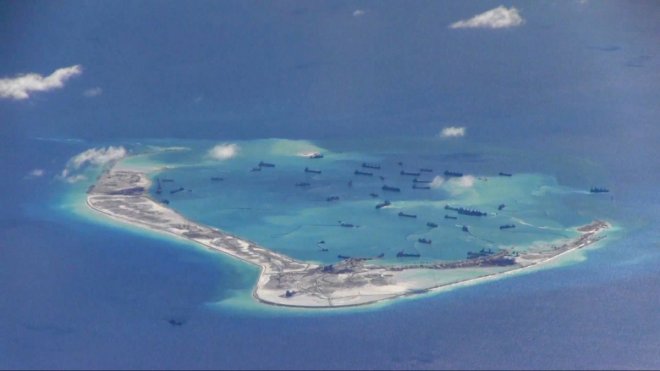
The Philippines and China is all set to open bilateral talks their dispute over the conflicted waters of South China Sea next week, Manila's ambassador to Beijing said on Saturday.
"We will inaugurate the bilateral consultative mechanism on issues of particular concern to each side. This is where the sensitive issues will be discussed," Ambassador Jose "Chito" Santa Romana said in Beijing in comments aired by ABS-CBN television.
Despite China's extensive island-building in disputed parts of the South China Sea, Philippine President Rodrigo Duterte has sought to deepen relations with Beijing in the hopes of securing billions of dollars' worth of investments from Beijing.
Santa Romana made the comments ahead of Duterte's arrival in Beijing to attend the One Belt, One Road summit on Sunday and Monday - a pet project of Chinese President Xi Jinping.
"The first session will be next week but this will be a session that will continue on a twice-yearly basis, a chance to exchange views on the South China Sea issue," he added.
According to Santa, the Duterte administration was putting the South China Sea dispute on a separate track while pursuing economic and diplomatic relations with China. He added that previously bilateral ties had been "frozen" because the territorial row had taken centre stage.
"There is a whole sphere of relationships you can fast-track without giving up your sovereignty claim. To put it on a separate track is not to abandon or give up but rather to compartmentalise it," he said.
China claims nearly whole of the strategically vital waterway, despite partial counter-claims from several regional states such as the Philippines, Brunei, Malaysia, Taiwan and Vietnam.
Although, Duterte has distanced the Philippines from its traditional ally, the United States, but he has sought closer ties with China and Russia. In April, Duterte alarmed observers when he issued a chairman's statement, after hosting the Association of Southeast Asian Nations (ASEAN) summit. The summit took a soft stance towards Chinese actions in the South China Sea.
The statement merely took note of "concerns expressed by some leaders over recent developments in the area". It also ignored an international tribunal ruling last year that said China's claims to most of the sea were unlawful.









